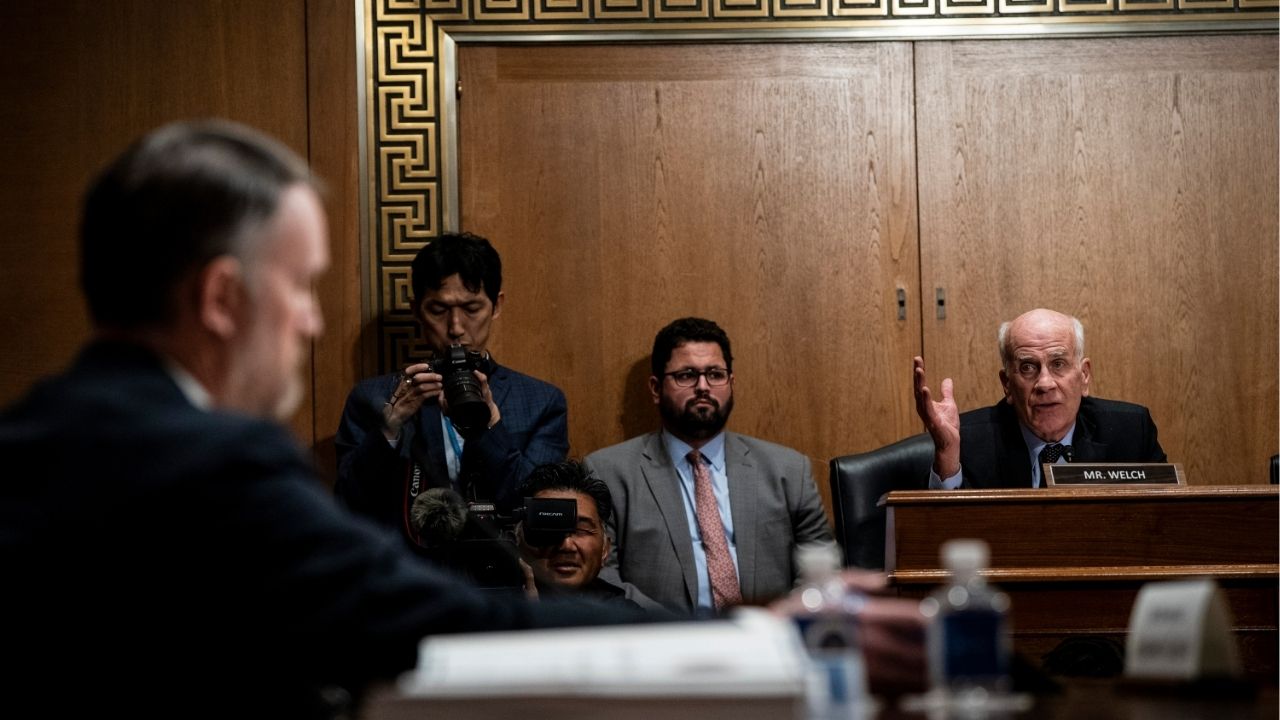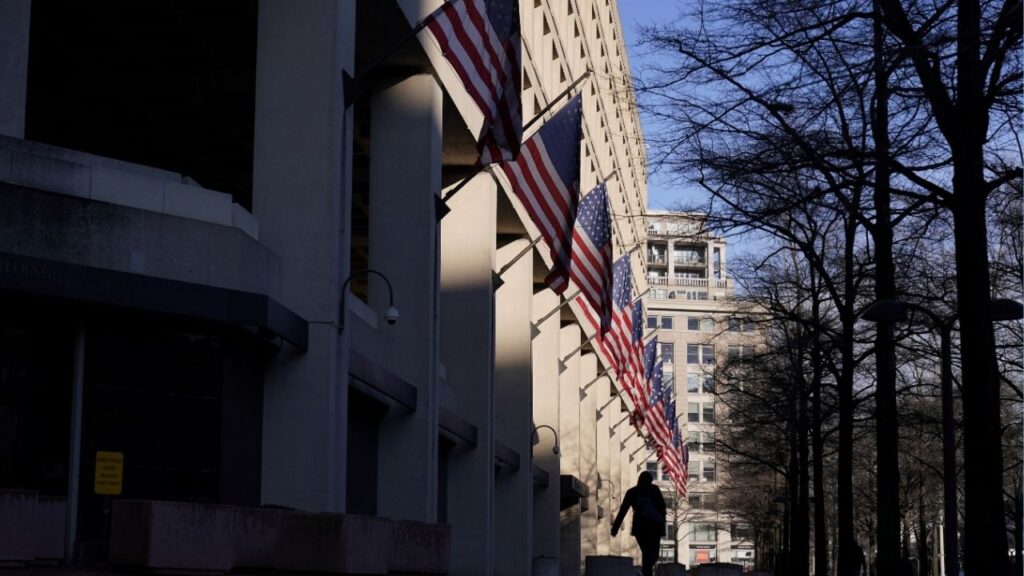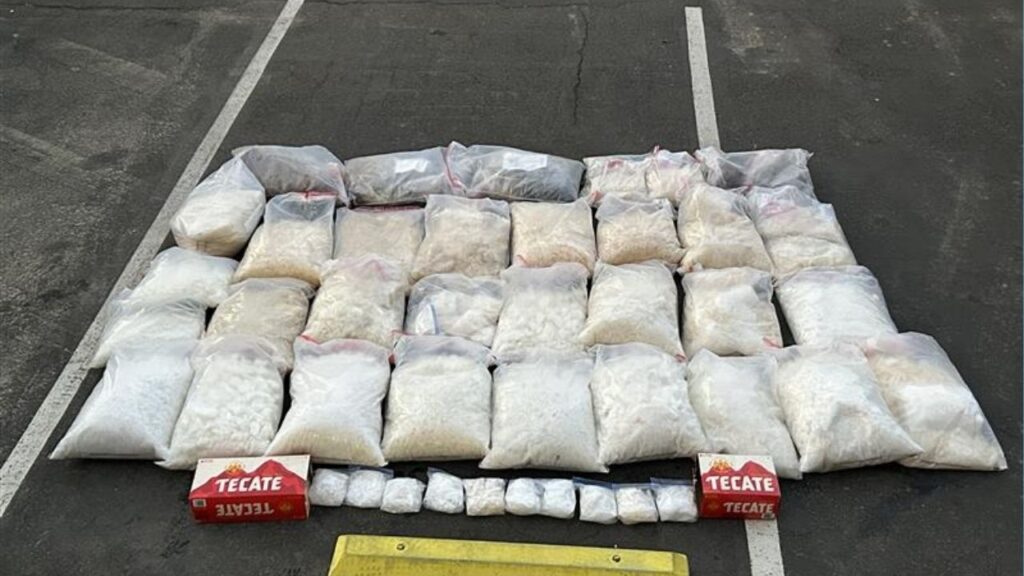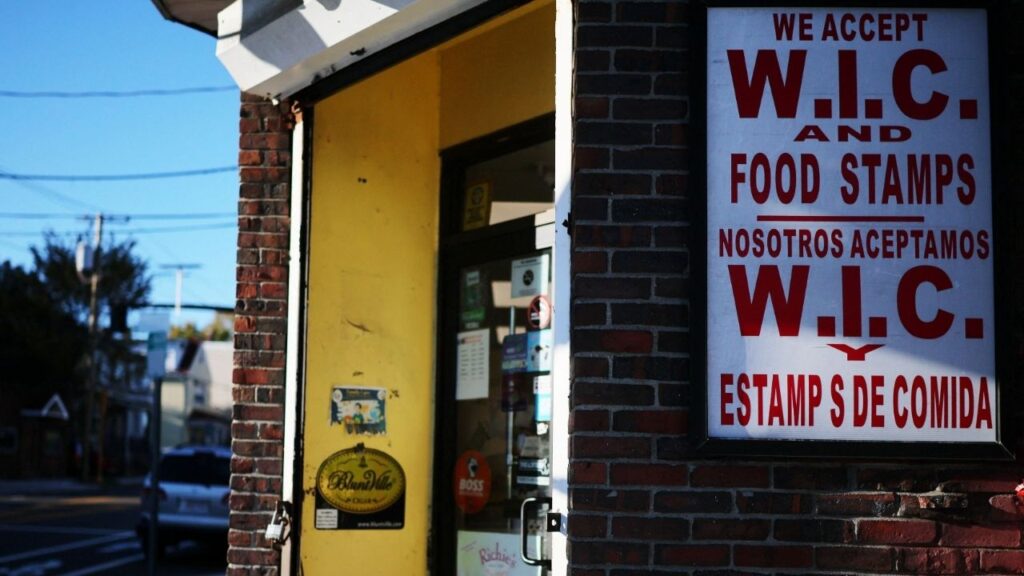Sen. Peter Welch (D-Vt.) questions Jamieson Greer, the U.S. trade representative, during a Senate Finance Committee hearing to examine President Donald Trump’s trade policy on Capitol Hill in Washington, on Tuesday, April 8, 2025. (Haiyun Jiang/The New York Times)

- Global markets tumble as Trump imposes steep new tariffs; China and EU retaliate, escalating fears of a worldwide recession.
- Stocks, bonds, and the dollar fall simultaneously — a rare occurrence — signaling deep investor anxiety and potential economic instability.
- Oil prices drop to four-year low, adding pressure to U.S. energy sector amid rising recession fears and global trade turmoil.
Share
|
Getting your Trinity Audio player ready...
|
Stock markets wavered and turmoil spread to the bond markets as President Donald Trump’s punishing new tariffs took effect. China responded with additional levies on American goods, and the European Union approved its own retaliation for U.S. steel and aluminum tariffs, adding to fears of a global recession.
Trump’s latest tariffs hit nearly all U.S. trading partners with new levies and raised import taxes on Chinese goods to 104%. Beijing then announced additional tariffs on imports from the United States, for a total levy of 84%, to go into effect at noon Eastern time.
Shortly before that, EU member states voted to approve countertariffs against the United States that would take effect Tuesday, its first response to Trump’s levies. Documents showed that duties of 25% would be applied to a wide range of goods imported from the United States, including products as varied as corn and plate glass. The bloc said its countermeasures “can be suspended at any time, should the U.S. agree to a fair and balanced negotiated outcome.”
Trading was volatile on the S&P 500, after European and Asian indexes declined, while the dollar also fell. Government bond yields, traditionally seen as a safe haven in times of uncertainty, rose sharply.
Stocks, bonds and the dollar do not typically all fall at the same time. The broad market rout reflects deepening concern that Trump’s tariffs could disrupt global supply chains, fuel inflation and set off a severe economic downturn.
But the president remained publicly unbowed. “BE COOL!” he posted on Truth Social on Wednesday morning. “Everything is going to work out well. The USA will be bigger and better than ever before!”
Here’s What Else to Know:
- Stocks fall: Asian markets slumped again Wednesday, and stocks in Europe also fell. France’s CAC 40 index plunged, wiping out its gains since the beginning of the year. The S&P 500, the benchmark U.S. stock index, was close to tumbling into a bear market, a worrisome threshold for investors.
- Bonds under pressure: Markets are in an unusual situation, with bond yields rising as stocks and the dollar fall. Yields rise when investors sell bonds — pulling down the price of bonds — which can reflect worries about inflation, shifts away from U.S. dollar assets or a need for investors to raise cash to cover losses on other trades. Rising yields push up the cost of borrowing for mortgages, credit cards, business loans and many other rates. The 10-year U.S. Treasury yield jumped to around 4.4%, up from below 4% at the start of the week.
- Defending tariffs: In Washington, Trump’s trade representative, Jamieson Greer, told a congressional committee that the president was right to label the country’s trade deficit a national emergency, which gave him the legal authority to impose his levies on all imports. He said the United States’ overall trade deficit is “a manifestation of the loss of the nation’s ability to make, to grow and to build,” adding that “the president recognizes the urgency of the moment.”
- Oil prices tumble: U.S. oil prices fell to about $56 a barrel Wednesday morning, the lowest level in more than four years. The slide in crude prices signals deteriorating confidence in the strength of the economy and has spooked U.S. oil executives, many of whom had backed Trump.
- Asian industry: In commercial and industrial hubs across Asia, businesses grappled with the effects of the levies. Along a strip of small garment and machinery shops in Guangzhou, China, the mood among factory owners was tense. One said he was confident that Americans would still want his exports, but added that he was worried about a drop in consumer confidence and spending in the United States.
- Indian pharmaceuticals: Trump spooked India’s pharmaceutical industry, the country’s most successful exporters, when he said Tuesday that he would soon announce “a major tariff” on drugmakers. The companies had been exempted in the first round of levies, but Trump has argued that in the long term more medications should be made in the United States.
—
This article originally appeared in The New York Times.
By Yan Zhuang, Keith Bradsher and Matthew Mpoke Bigg/Haiyun Jiang
c. 2025 The New York Times Company




















